Nội Dung Chính
(Page 18)
This unit includes:
LANGUAGE
Pronunciation
Contracted forms
Vocabulary
Words and phrases related to generational differences
Grammar
Modal verbs: must, have to, and should
SKILLS
Reading: Reading for main ideas and specific information in an article about different generations
Speaking:
• Talking about the different generations of the family
• Starting a conversation or discussion
Listening: Listening for specific information in a conversation about family conflicts
Writing: Writing an opinion essay about limiting teenagers' screen time
COMMUNICATION AND CULTURE / CLIL
Everyday English
Asking for and giving permission
Culture
The generation gap in
Asian American families
PROJECT
Carrying out a survey to find out generational differences in families
I. GETTING STARTED
What is a generation gap?
1. Listen and read. 🎧
Ms Hoa: Good morning, class. Today, we'll talk about the generation gap. So, what is the generation gap?
Mark: Well, I think it's the difference in beliefs and behaviours between young and older people.
Ms Hoa: You're right, Mark. So, is there a generation gap in your family?
Mark: Not really, Ms Hoa. I live in a nuclear family with my parents and brother. We understand each other quite well though we still argue over small things.
Ms Hoa: Right. We can't avoid daily arguments. What about you, Mai?
Mai: Well, I live with my extended family, and I have to learn to accept the differences between the generations.
Ms Hoa: That's a good point. Can you give us an example?
Mai: Well, my grandparents hold traditional views about male jobs and gender roles. For example, my grandfather wants my brother to be an engineer, but my brother hopes to become a musician. And my grandmother thinks women have to do all the housework.
Ms Hoa: How about your parents? Do they share your grandparents' views?
Mai: No, they don't. They think that we should follow our dreams. They give us advice, but never force us to follow in their footsteps.
(Page 19)
Ms Hoa: Thank you, Mai, for sharing your experiences. You must respect your parents and grandparents, but you should also express your opinion. Now let's continue our discussion with...
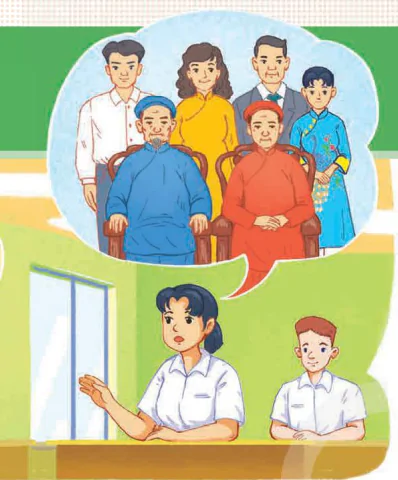
2. Read the conversation again. Tick (✓) the true information about Mark and Mai.
| Mark | Mai | |
| 1. has some arguments over small things with family members. | ||
| 2. lives with grandparents who have traditional views. | ||
| 3. lives in a nuclear family. | ||
| 4. has parents who don't force their children to follow in their footsteps. |
3. Find words or phrases in 1 that have the following meanings.
| 1. all people who were born at about the same time | ________ |
| 2. a family that consists of a father, a mother, and children | ________ |
| 3. a family that includes not only parents and children but also uncles, aunts, grandparents, etc. | ________ |
| 4. disagreements about things | ________ |
4. Choose the modal verbs used in 1 to complete the sentences.
1. Mai lives with her extended family, and she has to / should learn to accept the differences between the generations.
2. Mai's grandmother thinks women have to / should do all the housework.
3. Mai's parents believe that children must / should follow their dreams.
4. Ms Hoa thinks that children have to / must respect their parents and grandparents.
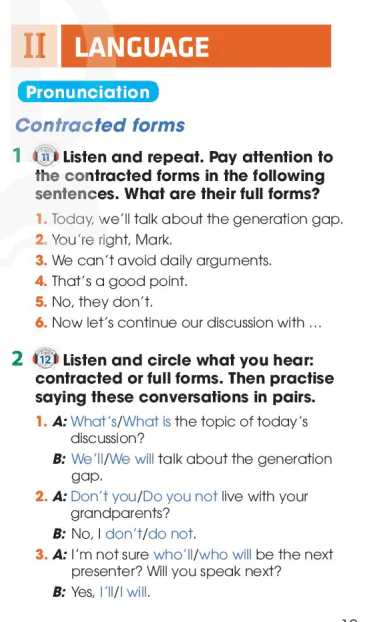
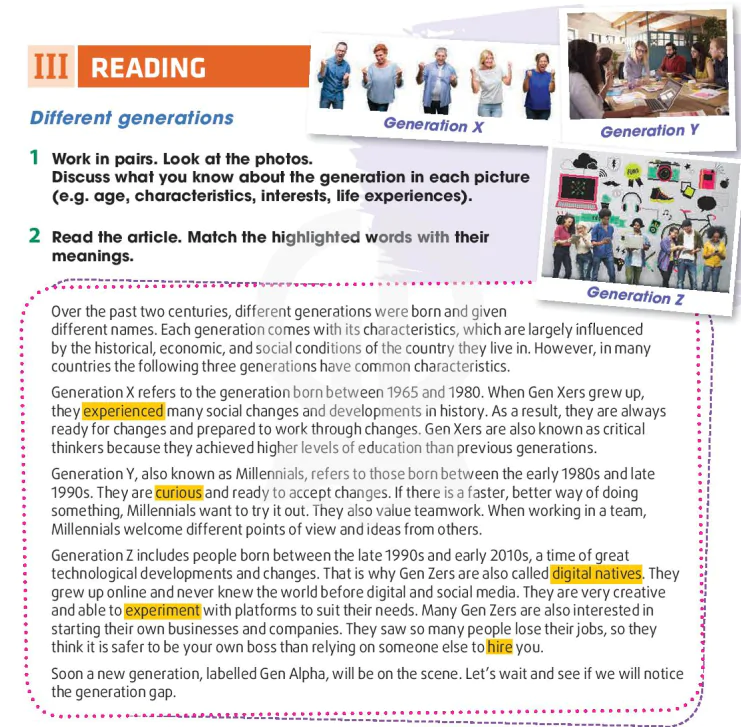
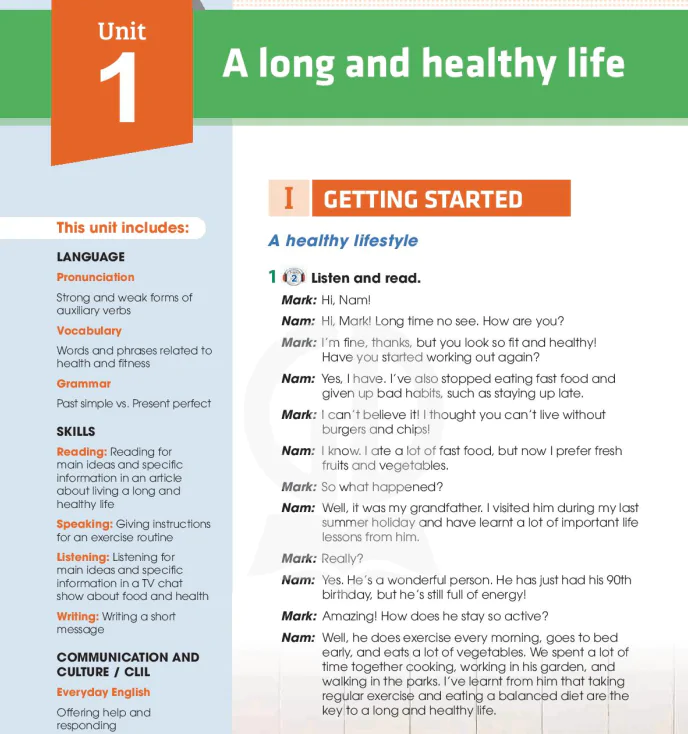
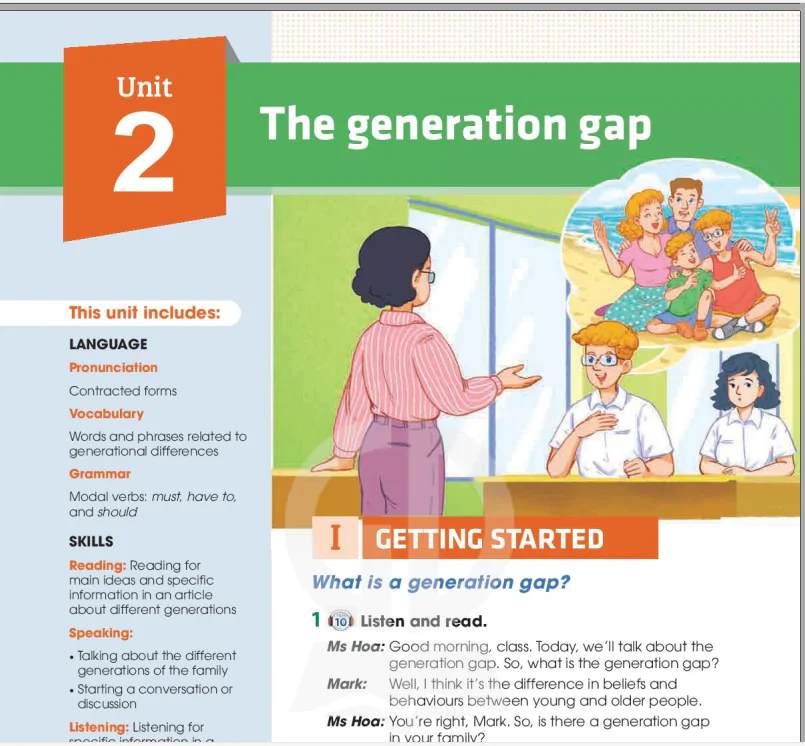
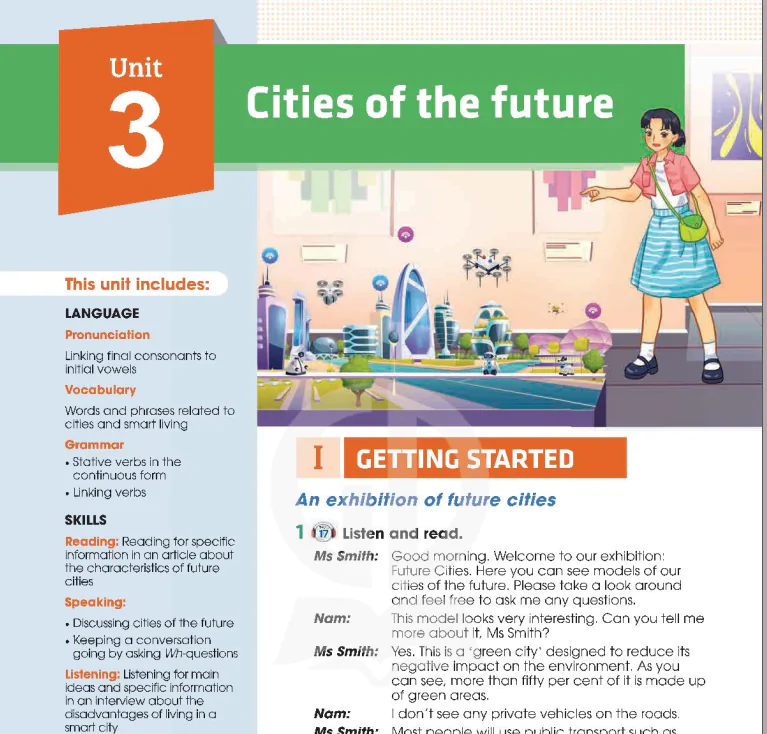

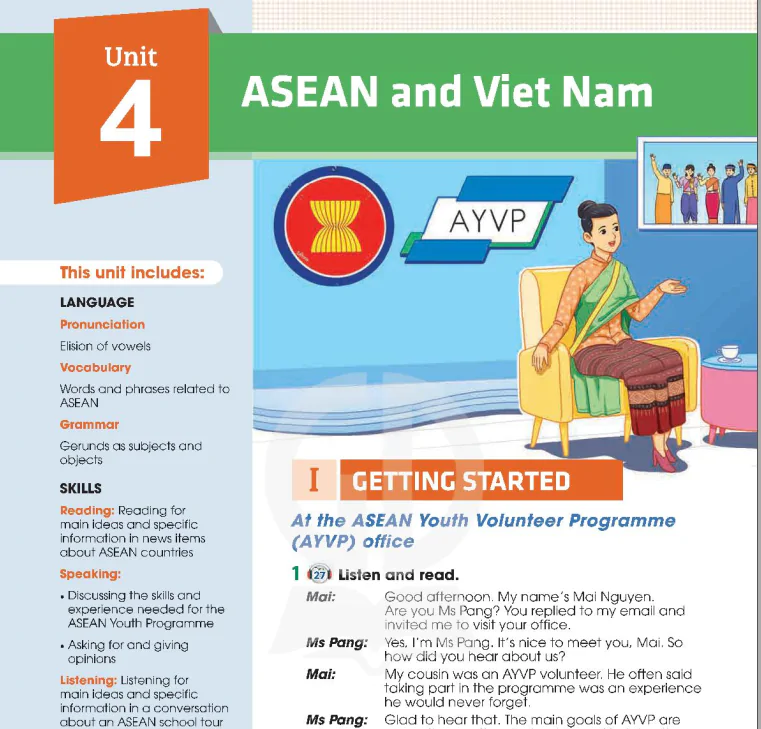


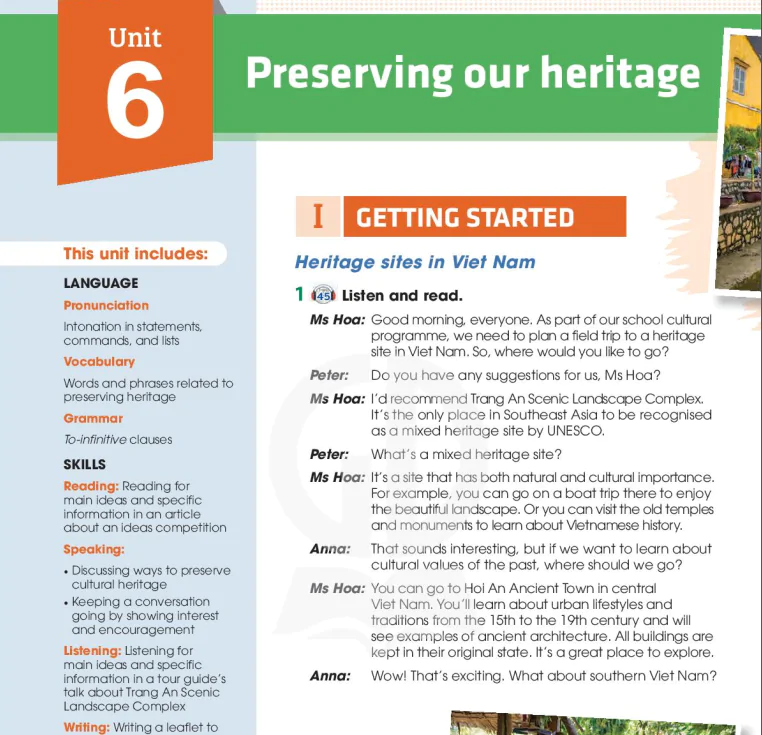

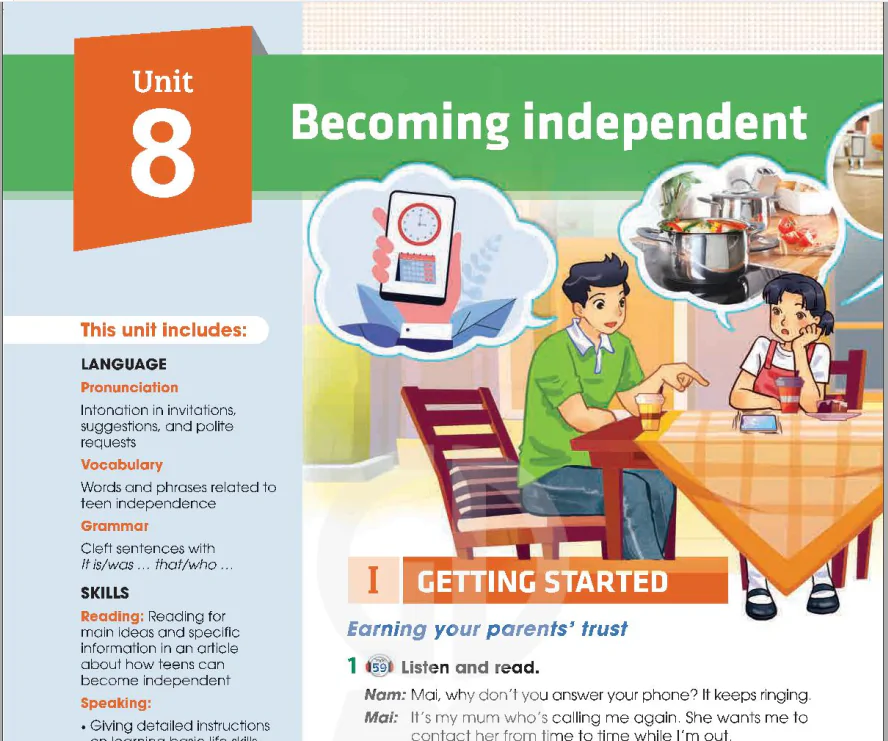
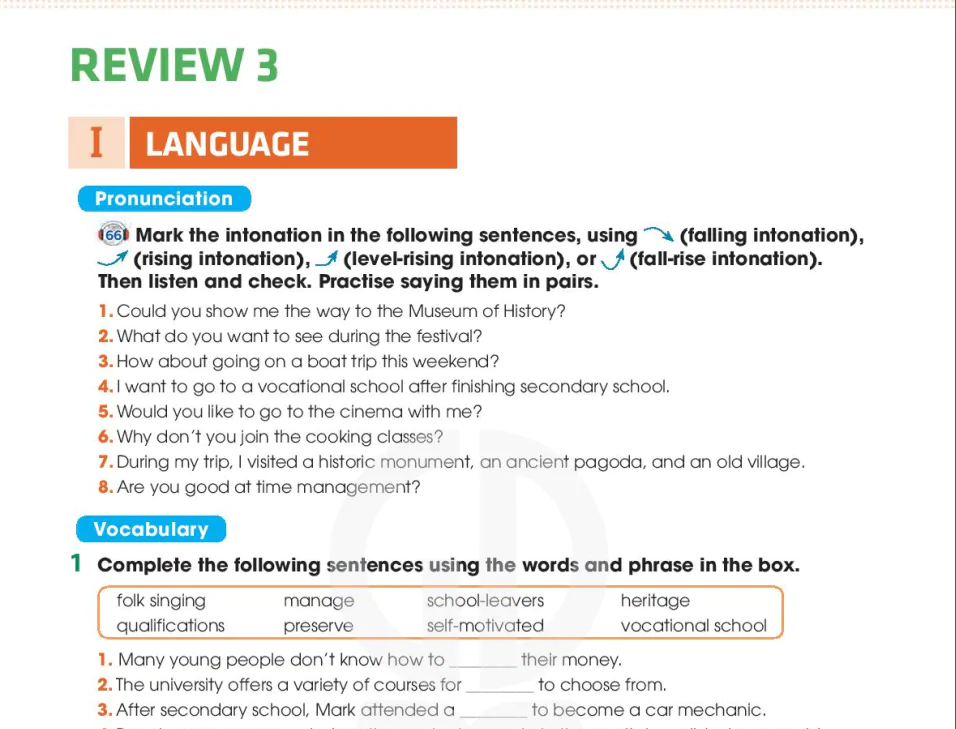
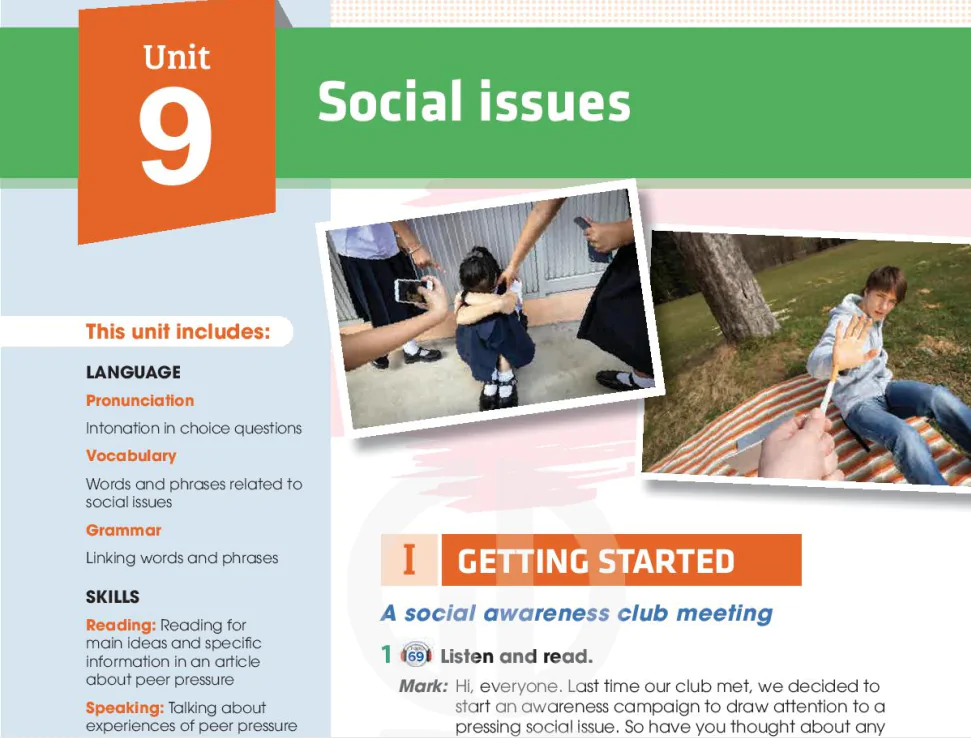

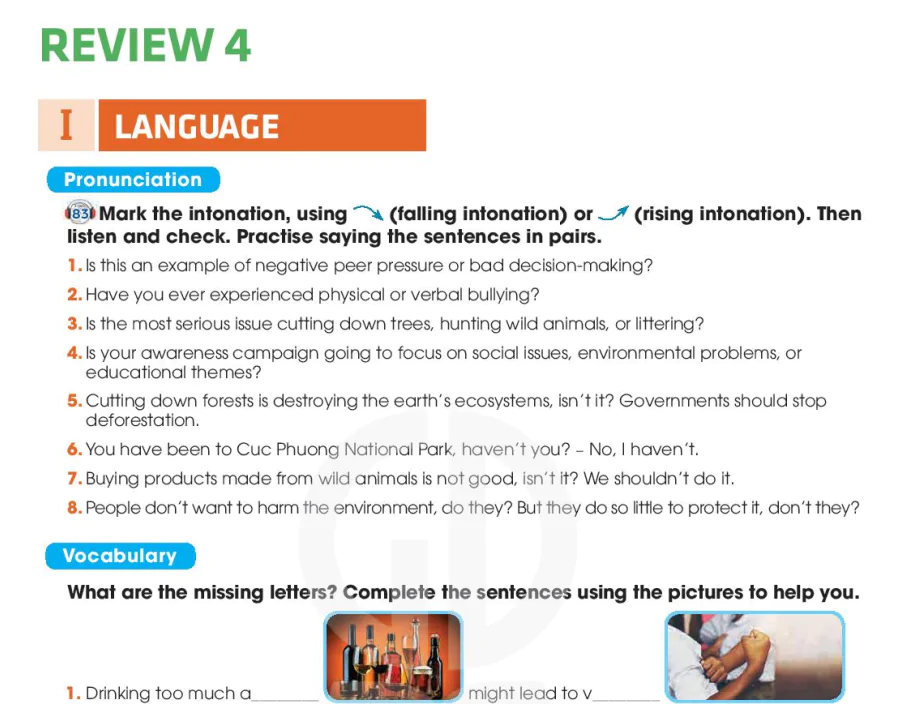
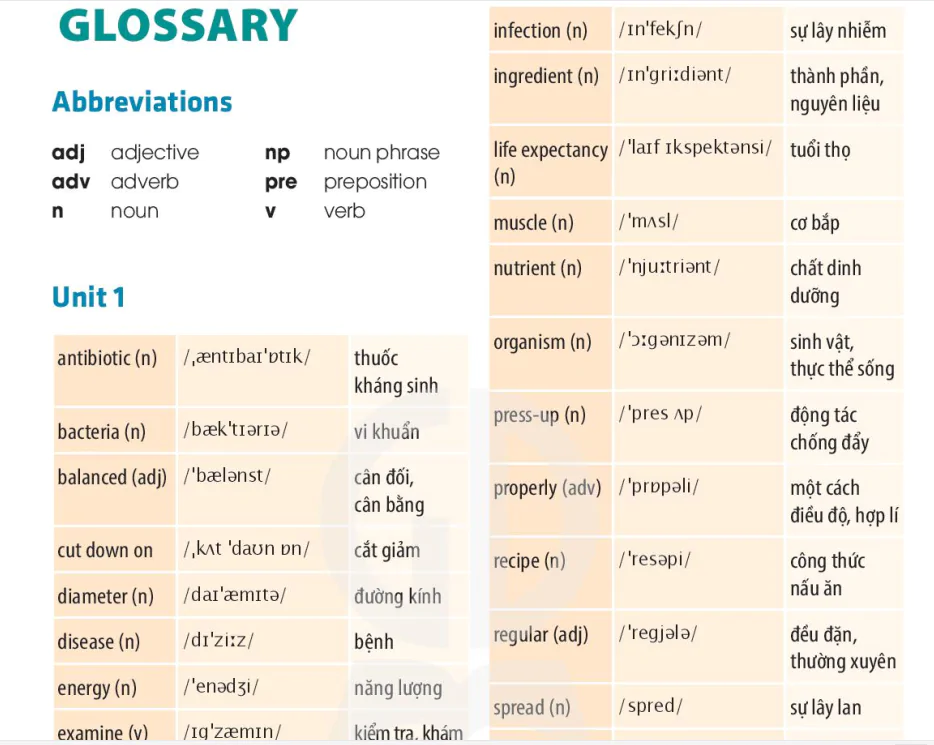
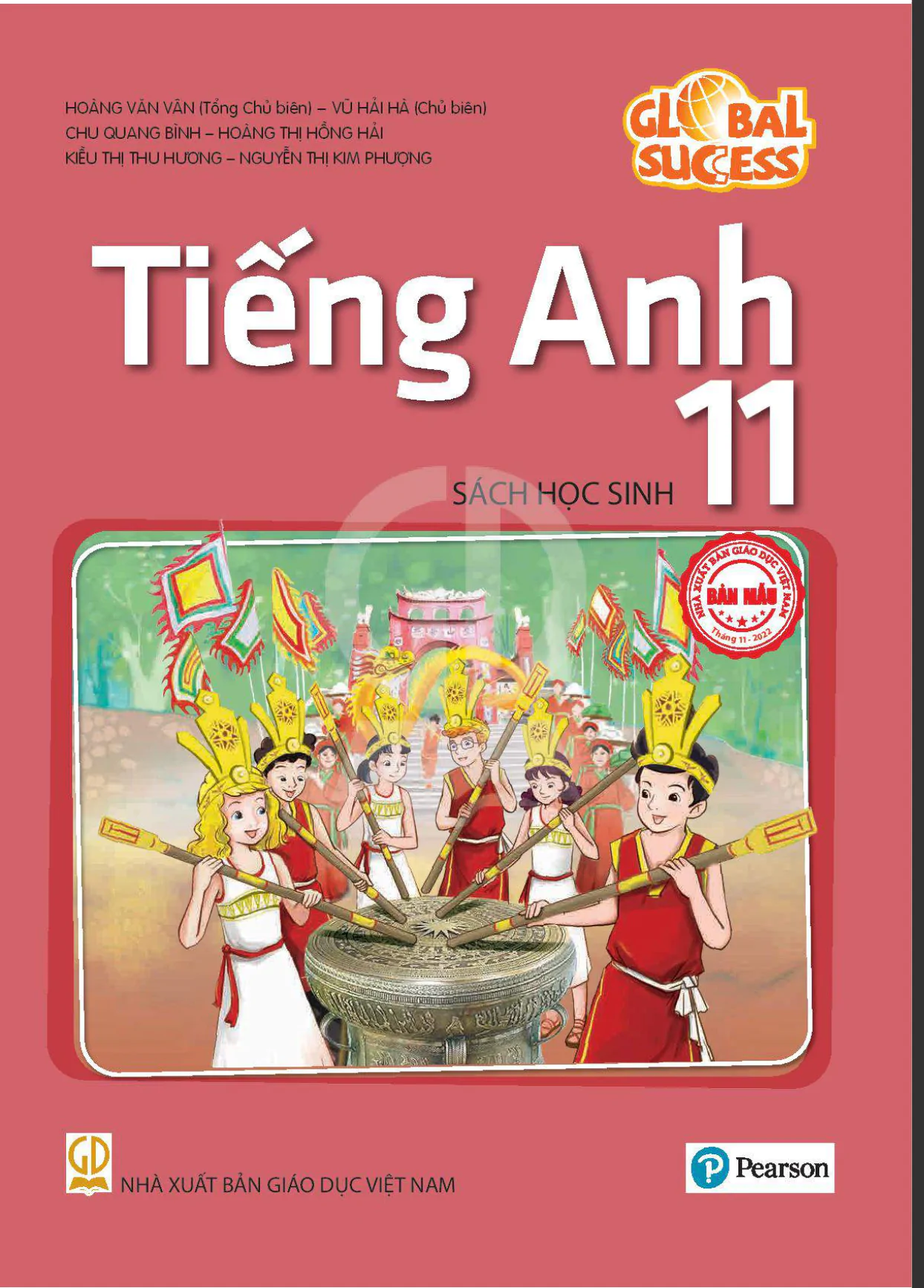

















Bình Luận
Để Lại Bình Luận Của Bạn